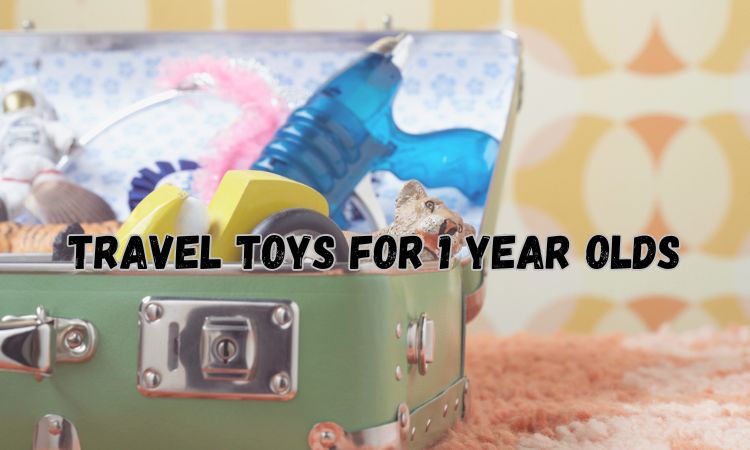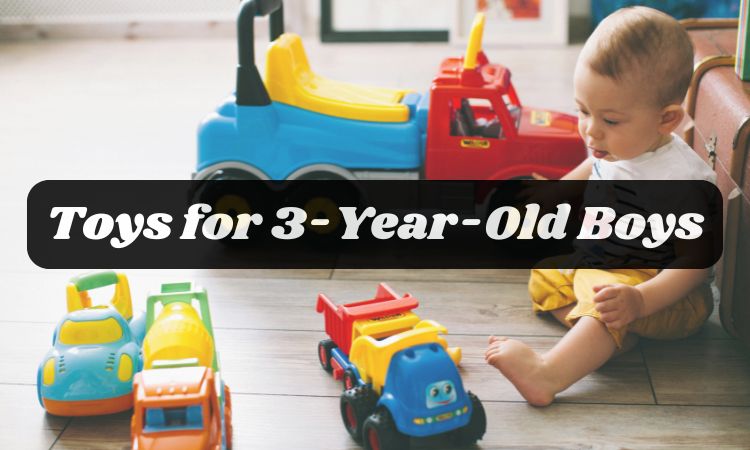You finally get your baby down for a nap, and just as you start to relax… you hear a soft cry coming from the crib. When you check, they’re still asleep—but clearly upset. It’s confusing, even a little heartbreaking. And like so many new parents, you’re left wondering: why do newborns cry in their sleep?
The truth is, those sleepy little sobs can mean a lot of things—and most of them are totally normal. In this guide, we’ll break down what might be going on during those restless moments, whether babies can have nightmares, how you can gently comfort them, and when it might be time to talk to your pediatrician.

Why Do Newborns Cry in Their Sleep?
Hearing a sudden whimper from the bassinet can jolt you awake and make you wonder why newborns cry in their sleep when they seemed perfectly content moments ago. The answer is usually a mix of perfectly normal developmental quirks and basic needs. Below are the most common culprits:
Sleep Cycle Transitions
Newborns don’t sleep like us adults. Their sleep cycles are much shorter — around 40 to 50 minutes — and they spend roughly half of every snooze in rapid-eye-movement (REM) sleep.
REM or active sleep is a light phase where their tiny bodies twitch, eyes dart beneath closed lids, and breathing changes pace. As they shift between REM and deeper “quiet” sleep, a brief cry or fuss is common and often ends before you can cross the room.
Think of it as your baby’s brain practicing how to move smoothly from one stage to the next — nothing to worry about.
Gas or Digestive Discomfort
Gas is a very common reason why newborns cry in their sleep. Their digestive system is still maturing, so it’s easy for air bubbles to build up during or after feeding. Your baby might cry, arch their back, pull their knees up, or seem restless. This usually points to gas or mild discomfort.
Research has shown that cries linked to discomfort have distinct sound patterns. You don’t need to decode every cry, but if your baby settles after burping or a tummy rub, gas was likely the cause.
Overstimulation Before Bed
Too much noise, light, handling, or activity can overstimulate your baby’s senses — especially in the evening. When they’re overstimulated, it’s harder for them to wind down, which can lead to crying during sleep.
This doesn’t mean babies need total silence and darkness before bed. Research suggests that predictable, calming stimulation (like soft lights, gentle rocking, or a quiet voice) actually supports better sleep.
If your baby seems fussy before bed, they may be getting too much input.
Hunger or Growth Spurts
Sometimes, a sleepy cry is your baby’s way of saying, “I’m hungry!” Newborns have small stomachs and need to feed frequently—every 2 to 4 hours. During growth spurts, which can sneak up around weeks 2, 6, and 12, they may wake and cry more often from hunger, even while still dozing.
Startle Reflex (Moro Reflex)
If your baby suddenly flails their arms or legs and starts crying while asleep, it’s likely the Moro reflex. This is completely normal and happens in response to a sudden sound, movement, or even nothing at all.
The reflex is part of healthy neurological development and peaks in the first 2 months. It usually fades by 4 to 6 months of age.
Can Newborns Have Nightmares?
It’s a thought that crosses many parents’ minds after hearing a sudden cry in the middle of the night: Is my baby having a bad dream? While it’s natural to wonder, the truth is that newborns aren’t likely to have nightmares—at least not in the way older children or us adults do.
Right now, science can’t say for sure what (if anything) newborns dream about. Their brains are still rapidly developing, and the parts that handle emotions, memory, and imagination—the building blocks of dreams—aren’t fully “online” yet.
While babies do experience REM sleep, which is the dream-rich phase in adults, it’s believed that in newborns, REM is more about brain growth and nervous system development than processing memories or fears.
What seems like a nightmare might actually be something else entirely:
- A startle reflex kicking in.
- A shift in sleep stage.
- A brief discomfort, like needing a burp or a quick hunger cue.
These moments can lead to whimpers, grunts, or brief cries—all without your baby ever truly waking up or experiencing fear.
As your baby gets older—closer to 6 months—you may start to notice signs of more complex emotional responses during the day. That’s when the possibility of dream-like experiences becomes more realistic. But in the early weeks? It’s mostly their little bodies adjusting and responding to physical sensations, not scary dreams.
How to Soothe a Newborn Crying in Their Sleep?
When your baby cries in their sleep, your first instinct might be to scoop them up—but sometimes less is more. Many newborns cry briefly and then drift right back into deeper sleep. The key is learning when to intervene and how to comfort them gently if needed.
Pause and Observe
Before jumping in, give your baby a moment. If their eyes are closed and movements are light, they may just be shifting sleep cycles. Jumping in too soon can wake them fully. If the cry fades or stops after a few seconds, they’re likely drifting back into deeper sleep.
Offer Gentle Reassurance
If the crying continues, try comforting your baby without picking them up right away. You can:
- Lightly place your hand on their chest.
- Gently shush or whisper.
- Rock the bassinet slowly if it’s safe to do so.
These small actions mimic the soothing environment of the womb and can be enough to calm them.
Check for Basic Needs
Sometimes the solution is simple:
- Are they hungry? A quick feed might be in order, especially during growth spurts.
- Is the diaper wet or dirty?
- Are they a little cold or too warm? Feel their chest or back (not hands or feet) to gauge temperature.
If you’ve ruled out hunger, discomfort, and gas, soothing with closeness—like holding them skin-to-skin—can be very calming.
Use a White Noise Machine or a Soothing Sound Toy
Soft, steady background sound can do wonders for helping your baby drift back to sleep. It mimics the comforting whoosh and hum of the womb, blocking out sudden sounds that might otherwise wake them.
A helpful tool here is the Alilo baby music player. You can use it as a white noise machine to create a peaceful sleep environment or play soft lullabies when your baby needs soothing during nighttime wake-ups. It comes preloaded with 76 tracks, including classic nursery rhymes, bedtime stories, lullabies, and ambient white noise, so there’s always something calming to turn to.
Plus, there’s a sweet feature that lets you record your own voice, so your baby can fall asleep to your comforting tone, even when you’re not in the room. This cute, bunny-shaped high-fidelity speaker is USB-C rechargeable and automatically powers down after 30 minutes.
The Alilo player also works well as part of a consistent bedtime routine, which is key to helping your baby recognize sleep cues. The soft light-up ears, easy-to-press buttons, and safe, durable design make it a great all-in-one sleep companion that grows with your child.

Try Swaddling or a Pacifier
If your baby isn’t already swaddled—and they’re under 8 weeks old—try swaddling them snugly (but safely). Swaddling can reduce the Moro reflex, helping your baby feel secure and sleep more soundly. A pacifier can also provide comfort during light sleep without fully waking them.
When to Call a Doctor
Most of the time, a newborn crying in their sleep is totally normal. But as a parent, you know your baby best—and sometimes, those cries are your baby’s way of telling you something’s not quite right.
Here are a few signs to watch for:
- Persistent or high-pitched crying that doesn’t stop with soothing or feels different from their usual sounds.
- Crying accompanied by other symptoms, like fever, vomiting, a rash, or trouble breathing.
- Baby seems unusually hard to wake or is unusually sleepy during the day.
- Changes in feeding patterns—like refusing to eat or eating much less than usual.
- Very few wet diapers (fewer than 4–6 in 24 hours after the first week) or signs of dehydration.
If something feels off, it’s always okay to call your pediatrician—even if it turns out to be nothing. You’re not overreacting—you’re parenting. Getting reassurance from a medical professional can bring peace of mind, and that’s just as important as sleep.
Conclusion
Those sleepy cries can pull at your heartstrings, but now you know more about why do newborns cry in their sleep—and that knowledge can bring a little peace of mind. Most of the time, these sounds are just part of your baby’s early development and nothing to worry about. Whether it’s a gentle pat, a quick cuddle, or simply letting them settle back down on their own, you’re doing what’s best. And if something feels off, always trust your gut and check in with your pediatrician.
FAQs
What is the 5 8 5 rule for babies?
The “5-5-8 rule” is a baby-soothing technique based on research by Dr. Kumi Kuroda. It involves three steps:
- Carry your baby while walking for 5 minutes to help calm them.
- Sit and hold your baby for 5 to 8 minutes to allow them to settle into a deeper state of relaxation.
- Gently lay your baby down to sleep.
This method has been shown to slow a baby’s heart rate and promote sleep, reducing the chances of them waking up when placed in their crib.
Why do newborns cry in dreams?
Newborns likely don’t have dreams the way older children or adults do. Their brains are still developing, and REM sleep at this age is mainly for growth. So, if they cry while sleeping, it’s probably due to a reflex, a noise, discomfort, or a normal shift between sleep cycles—not a scary dream.
Is it normal for newborns to cry in their sleep?
Yes, totally normal. Newborns often cry or make noises during sleep due to immature nervous systems, transitioning between sleep cycles, or minor discomforts like gas. These episodes are usually brief and not a cause for concern.
Should I wake my baby if they cry in their sleep?
Not right away. If your baby is crying lightly with eyes closed, it’s usually best to wait a few seconds and see if they settle on their own. If the crying continues or seems distressed, a gentle check-in is fine—but many babies go right back to sleep without needing to be picked up.







Share and get 5% off!
Simply share this product on one of the following social networks and you will unlock 15% off!